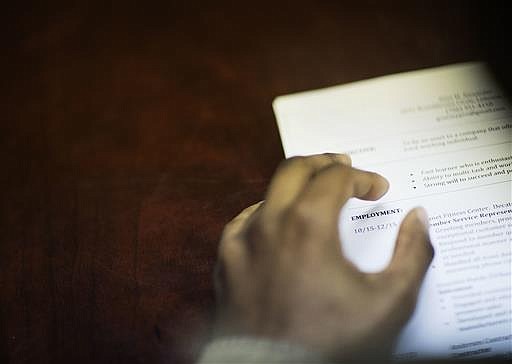Business economists are giving a more pessimistic outlook about U.S. economic growth this year for the third consecutive month and uncertainty over the November presidential election has proven to be damaging.
The median estimate from economists surveyed by the National Association for Business Economics calls for gross domestic product growth of only 1.8 percent, down from the 2.2 percent forecast in March. The outlook for next year calls for 2.3 percent growth.
The survey also shows the forecast for growth in corporate profits swinging from a 2 percent gain in March to negative 2 percent this month.
Of the economists surveyed, 57 percent said uncertainty over the election led them to reduce their expectations.
Doubts about the economy deepened last week when the government reported hiring in May slowed to a near-standstill. While unemployment slid from 5 percent to 4.7 percent, the lowest since November 2007, the rate fell for a troubling reason: Nearly a half-million jobless Americans stopped looking for work and so were no longer counted as unemployed.
Employers added just 38,000 jobs in May, the fewest in more than five years.
The surprisingly weak jobs report raised doubts the Federal Reserve will increase short-term interest rates at its next meeting in mid-June or perhaps even at its subsequent meeting in July. Rates have hovered around zero for seven years and almost everyone had expected the Fed to grow more aggressive this summer.
Economic unease has shaken up the upcoming presidential race.
Forty-nine percent of the economists in the NABE survey see a positive impact on economic growth this year from low oil prices, as opposed to 18 percent viewing it as a negative. For next year, 55 percent see the impact as positive and 7 percent as negative.

